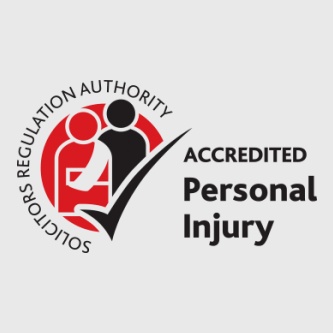Published: 25th February 2022
When you think of city cycling havens, it’s very unlikely that what you picture is anywhere in the UK. Instead, it’s places like Amsterdam and Copenhagen that are heralded as the great bastions of cycling infrastructure in Europe. As it stands, cycling in many places in the UK may seem quite dangerous because of some driver’s attitudes towards bike riders and the limited cycling measures in our cities.
So, what lessons can we learn from our neighbours and which UK cities are already leading the way?
Why cycling infrastructure is so important
The coronavirus pandemic has had a large impact on how we understand 21st century city living, and the importance of air quality and general fitness. In the first few lockdowns, new measures were put into place in all over the UK, such as Low Traffic Neighbourhoods and temporary bike lanes, all designed to encourage more people to get out on two wheels.
A study from the European Cyclists’ Federation found that cycling levels in European cities in the first months of the pandemic boosted from 11% to 48%, and these levels were generated by pop-up bicycle lanes. The reason this type of infrastructure is so beneficial is that it has a positive impact on the local climate, public health and economy.
Case studies
There are plenty of examples to choose from but we’re going to focus on three cities that over the past year have had their own cycling revolutions. One such example is Paris. The city has had 20 million euros of investment and there’s a lot that UK capitals can learn from the money’s application.
The notoriously busy Rue de Rivoli has been shut down in sections so that it is completely car free, and the government has even offered a 50-euro subsidy towards bike repair costs. As a result, cycling levels in the capital have increased by 27%. Brussels has also had a cycling boom of 44% thanks to parts of the city being closed to cars, and investment in cycle infrastructure such as bike lanes on roundabouts.
Copenhagen and Amsterdam had this infrastructure long before the pandemic, which has bred a culture of bike riding quite unlike anywhere else in the world. This is in part due to the types of bicycles on offer, many of which are town/cargo bikes, and now e-bikes too. This is a worthy investment as it overturns the perception that cycling is something you can only do in special clothing as a fitness enthusiast, making it a mode of transport that is both a leisure activity and a mode of transport which fills the role of a car.
Lessons we can learn from Europe
There are many things to take away from the ways European cities have treated cycling. The biggest lesson is that investment, like we’ve seen in Paris, is needed to improve the infrastructure and encourage more people to ride. Once a budget is defined, the next thing is to make it safe.
Protected cycle routes and low-traffic areas are the only way to get people of all abilities and fitness levels to ride their bikes without fear of getting into an accident. Next comes facilities like safer and more secure bike parking in the cities and at offices to deter thieves, and finally continual investment to help maintain bicycle service and road quality.
The cities on the right path
It’s not all doom and gloom, there are a few UK cities that are making inroads into cycling infrastructure. In general, we are heading in the right direction thanks to a £2 billion package designed to create a new era for cycling and walking. Edinburgh and Bristol are two cities that are leading the way.
With 1,612 cycle routes and 96,947km of mapped networks, including the Bristol and Bath Railway Path, the west country city is England’s benchmark and is a good example of how we can begin to redefine convenience in our cities. Edinburgh is also a leader in this regard thanks to its 1,752 cycle routes, and a great mix of urban and green space in and around the Scottish capital.
In conclusion, the cycling infrastructure response during the pandemic showed that if you build it, they will come. The UK’s over-reliance on cars comes down to the fact that most traffic and town infrastructure was built with four wheels in mind, not two. By re-evaluating our hierarchy of road users in this country and following a model pioneered by places like Copenhagen, our cities could become safer, cleaner and healthier places to ride a bike.
As always, we wish everyone safe travels; however, if you or any of your family or friends are involved in an accident on the roads and require legal assistance from a Top Tier Legal 500 rated law firm, please do not hesitate to contact us.
We can be contacted on 0330 058 0377 for a free, confidential conversation with a qualified, serious injury solicitor. Alternatively, please send us your contact details to enquiry@seriouslaw.co.uk, and one of our team will be in touch. All enquiries are free and confidential.











